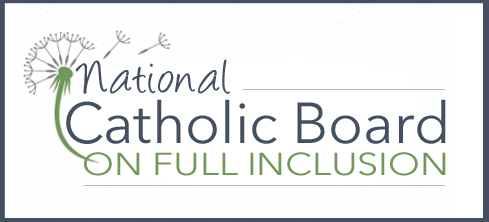- THE CODE OF CANON LAW and the Obligation of Parents to Educate Their Child • Quoted directly from Catholic Education: A Journal of Inquiry and Practice, July 2013 — “The Catholic School According to the Code of Canon Law” by Zenon Grocholewski
- Item 4 of the U.S. Catholic Bishops Statement on Disabilities states the following:
“Defense of the right to life implies the defense of all other rights that enable the individual with the disability to achieve the fullest measure of personal development of which he or she is capable. These include the right to equal opportunity in education, in employment, in housing, and in health care, as well as the right to free access to public accommodations, facilities, and services.” - CATHOLIC SOCIAL TEACHING
What is Catholic Social Teaching (CST)?
• CST forms a philosophical frame work that the Church has developed since the late 19th century.• In general Catholic Social Teaching (CST) typically references official messages on political, economic, and social issues conveyed by Church hierarchy, primarily through the offices of the Vatican and councils of bishops.
• Three central concepts from CST apply directly to the organization of Catholic schools:
(a) human dignity,
(b) the common good, and
(c) a preferential option for the marginalized:
(a.) CST attributes the intrinsic value of the human person, not to a social contract or utilitarian calculus, but to their formation in the image and likeness of God.
(b.) CST asserts human dignity is relational, that the human dignity of a person is achieved only in community with others. By extension, by not treating a person in full community with others, we are neccessarily treating them with less dignity. The common good is a balance between individual rights and the good of the wider society, and includes a “notion of integral human development…that no one should be excluded from the benefits of social development.”
(c.) CST extends beyond the notions of human dignity and the common good by placing a preferential option for those individuals who society marginalizes. This teaching holds that the Church is obligated to first serve “those who suffer violence and are oppressed by unjust systems and structures.”• Catholic schools cannot claim to be truly Catholic if they do not diligently strive to adhere to the fundamental teachings of the Church, and Catholic social teaching unambiguously compels catholic institutions to treat those on the margins with dignity.
• CST compels Catholic schools to strive to included traditionally marginalized students, yet practices of exclusion and elitism in recruitment and retention of students by Catholic schools persist.(Above information obtained from “All Are Welcome: Inclusive Service Delivery in Catholic Schools” by Dr. Martin Scanlan.)

Why Inclusion Rather than Segregation? Because we are One Body in Christ. It’s as simple as that!
That’s the spiritual imperative which to us is much stronger than any law.



